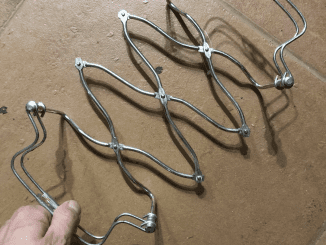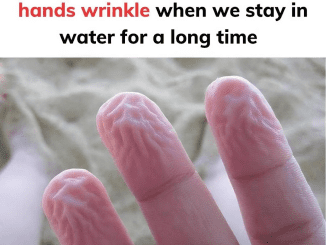Luscious locks of hair are often considered a symbol of youth and vitality, but for many, the day arrives when their once-thick mane begins to thin. If you’ve found yourself wondering where all your hair has gone, you’re not alone. While some opt for the bald look or embrace the change, others feel a deep sense of loss as their hairline recedes or thinning spots appear.
But what if the culprit behind your hair loss isn’t just aging, stress, or genetics? Experts have revealed a surprising lifestyle factor that might be playing a significant role in your hair thinning: alcohol consumption.
Could Drinking Alcohol Be Linked to Hair Loss?
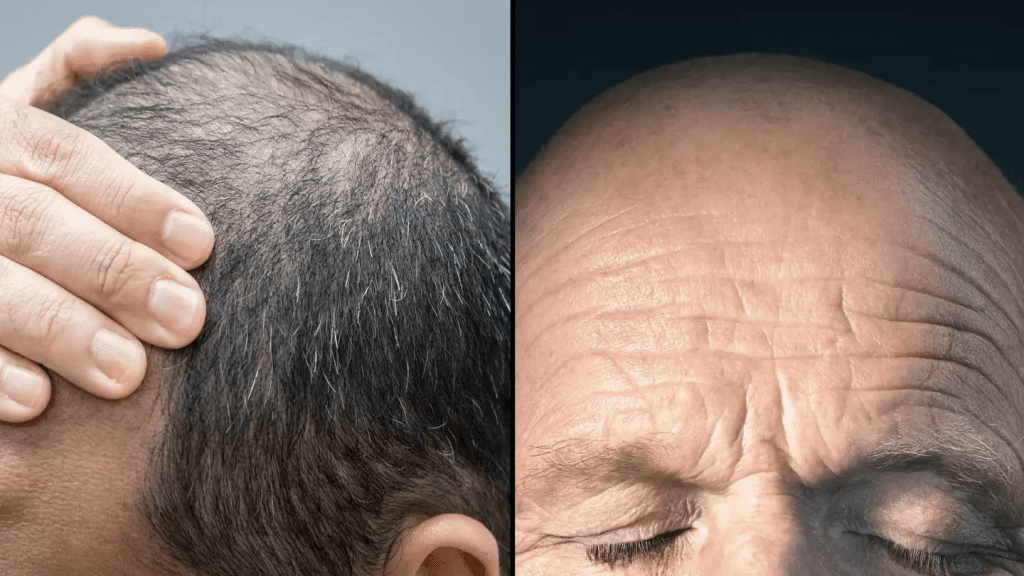
You might have heard about the many health effects of alcohol, but did you know that drinking regularly could potentially contribute to hair loss? Recent research conducted by experts at Pusan National University suggests that there is a link between alcohol consumption and androgenetic alopecia (AGA), a common type of hair loss.
So, what exactly does this mean for you? If you’re someone who enjoys a few drinks at social gatherings, especially with the upcoming holiday season and Christmas parties in full swing, it’s important to consider how alcohol might be affecting your hair health.
The Research Behind Alcohol and Hair Loss
In their study, researchers found that individuals who regularly consumed alcohol were 1.4 times more likely to develop androgenetic alopecia (AGA) compared to non-drinkers. AGA, often referred to as male or female pattern baldness, is a hereditary condition that typically leads to gradual hair thinning, particularly around the crown or at the temples.
While AGA is primarily driven by genetic and hormonal factors, the study suggests that alcohol consumption could be an additional contributing factor. According to Professor Yun Hak Kim, who led the study, “Individuals who consume alcohol may have a slightly higher likelihood of experiencing AGA compared to non-drinkers.”
This finding sheds light on a potentially overlooked factor in hair loss, one that could affect more people than previously thought.
Understanding Alopecia: What’s Really Happening?
Before jumping to conclusions, let’s take a step back and understand what alopecia really is. The term “alopecia” refers to hair loss and can be triggered by a variety of factors such as genetics, hormonal imbalances, medical conditions, or treatments like chemotherapy. While it’s not usually a cause for major concern, significant hair loss can have a major impact on self-esteem and confidence.
Androgenetic alopecia (AGA) is the most common form of hair loss and is often associated with male-pattern baldness. However, women can also experience AGA, usually in the form of thinning hair across the scalp rather than complete baldness. Researchers have long known that genetic predisposition and hormones (specifically dihydrotestosterone or DHT) play a major role in AGA.
The Role of Alcohol in Hair Loss: What’s the Connection?
You might be wondering, how does alcohol consumption impact hair health? While the exact mechanism remains speculative, the researchers hypothesize that a byproduct of alcohol metabolism called acetaldehyde could be to blame. Acetaldehyde is known to interfere with various biological processes, and it’s suggested that it could potentially disrupt the immune environment of the scalp, making hair follicles more susceptible to damage.
However, it’s important to note that the link between alcohol consumption and AGA is still being studied, and no definitive cause-and-effect relationship has been established. The findings of this study are merely a starting point for further research into the complex relationship between lifestyle choices and hair loss.
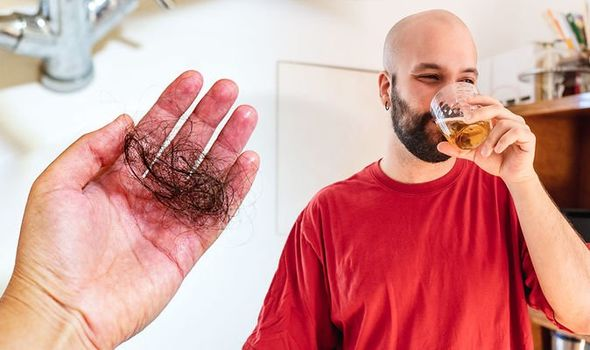
Can Drinking Alcohol Really Lead to Hair Loss?
While the research suggests a potential link between alcohol and hair loss, it’s important to keep in mind that AGA is influenced by a combination of factors, including genetics, hormones, diet, and overall health. Alcohol might not be the sole cause of your hair thinning, but it could be one of the many contributors to the problem.
If you’ve noticed that your hair is thinning and you drink regularly, this might be a good time to take a closer look at your alcohol consumption. Limiting your intake could help improve your overall health and, potentially, support healthier hair growth.
What Does This Mean for Your Lifestyle Choices?
The discovery of a possible link between alcohol consumption and AGA offers an opportunity for individuals to reassess their lifestyle habits. While it’s too early to say that drinking alcohol will directly cause hair loss, experts believe that understanding these potential connections could lead to better health practices in the future.
Professor Kim emphasized the need for further research to explore the connection between alcohol and AGA, with hopes that it will eventually inform public health guidelines and improve treatment strategies for hair loss. “Our research could inform public health guidance, patient counselling, and targeted awareness campaigns, helping individuals make informed lifestyle choices regarding hair health,” said Professor Kim.
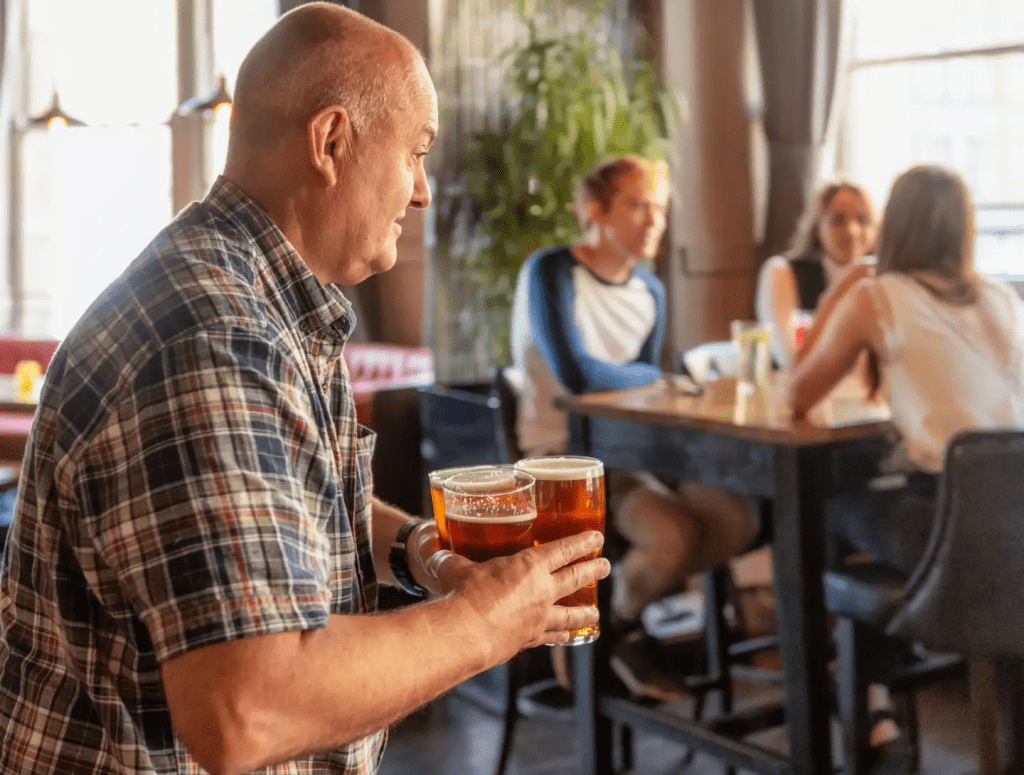
What Can You Do to Protect Your Hair?
If you’re concerned about your hair thinning and are wondering what steps you can take to protect your hair health, there are a few things you can do:
- Monitor Your Alcohol Consumption: If you’re someone who drinks regularly, consider cutting back. Not only can this improve your overall health, but it may also benefit your hair.
- Maintain a Balanced Diet: A nutritious diet rich in vitamins and minerals, especially those that promote hair health like biotin, zinc, and iron, can help nourish your hair follicles and encourage growth.
- Consider Other Lifestyle Changes: Regular exercise, stress management techniques, and adequate sleep can all contribute to overall health and hair vitality.
- Consult a Dermatologist: If you’re experiencing significant hair loss, it’s worth consulting with a dermatologist or a healthcare professional to explore potential causes and treatment options.
Conclusion: A Holistic Approach to Hair Health
While alcohol consumption may play a role in hair loss, it’s just one piece of the puzzle. Understanding the potential connections between lifestyle choices, genetics, and overall health can empower individuals to take control of their hair health. By making informed decisions about alcohol consumption, maintaining a balanced diet, and managing stress, you can take proactive steps toward maintaining your hair’s health and preventing further thinning.
The research on alcohol and androgenetic alopecia is still in its early stages, but it could pave the way for more personalized and effective treatments for hair loss in the future. For now, staying informed and making mindful lifestyle choices are the best ways to support your hair health in the long run.
